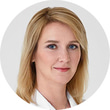- OT
- Industry
- Equipment and suppliers
- “Our goal is to help, because AI cannot ask all the questions”
Key milestones
“Our goal is to help, because AI cannot ask all the questions”
Maria Znamenska, chief medical officer at Altris, explains how a software that uses AI to speed up interpretation of OCT scans came into being
6 min read 1

Pixabay/Tayeb MEZAHDIA

Maria Znamenska
02 June 2023
1 Altris was founded in 2017. We had two years of development, and in 2019 received the CE mark as a medical software in the European Union.
50+
Altris AI accounts currently active in the UK
2 During COVID-19 we were still working, but maybe not as fast as we had planned.
The development of Altris AI never stopped, it was just a little bit slower in those years. When I look back on all that we went through, we did a great job.I am from Ukraine, and our CEO is also from Ukraine. We have lots of people working for Altris from Ukraine. We had a pause in our work when the war started, for the first couple of months. Some people left, and some people relocated inside Ukraine to safer cities and regions. Some of our team members are now in different countries.
Post-COVID-19 and despite the war, we have made huge improvements during the last year. We are not going to stop. We will continue building this product. It’s like a train; we are just moving forward.
3 We are continuously improving our software.
We update our tools every two weeks. No product can be perfect, and we understand that.I’m running an ophthalmology clinic in Kyiv, which is open currently. The main goal of the clinic is data collection and data annotation by retinal experts. We then give this data to our artificial intelligence (AI) specialists. When they build new features they show us, and we make an evaluation. If we see results that we are not satisfied with, we re-collect data.
Our team is not small, but it’s not a huge corporation where it takes years to approve anything new. We are doing things quickly. This is why every two or three weeks we have something new on our system. We are continuously improving the numbers, the accuracy, and what the user can see in the system – the usability.
It’s our everyday work to improve. We are continuously listening to our customers. They give us ideas. Sometimes they write to us: ‘it would be perfect to have this or that feature.’ Then, we consider if we can do it.
4 100% Optical 2023 was our first time at such an exhibition in the United Kingdom.
We met with a great interest from the industry. Not only eye care specialists, but also from optical coherence tomography (OCT) manufacturers and other people. We were pleased to see that what we are doing is interesting to people, and that it could be really useful.5 Our next step is to improve the product we have today: improvement the accuracy of detection of more pathologies.
For the commonly observed diseases we are pretty good, but there are some diseases that are not seen so often, so we are always working on improvement. We have an idea around glaucoma risk analysis, and this is what we are working on.I’ve been working with OCT since 2005, so almost 20 years. I also teach OCT diagnostics, as postgraduate education, to doctors and optometrists. From my teaching practice, I see mistakes eye care specialists can make when they do not have enough of experience in OCT or are not continuously working with OCT diagnostics.
AI can detect minor pathology in the very early stages. Also, it can provide risk analysis. We can recommend that the patient follows up more frequently. Our goal and our dream is to make more of those early diagnoses, where we can prevent or treat diseases in the early stages, while they still can be treated. In the late stages, unfortunately, sometimes things cannot be treated. We don’t want to see patients with irreversible blindness.
As eye care specialists, we can use AI for follow-up examinations, to understand the pathology and the pathogenesis of the disease. We can help eye care specialists to understand what would be best for the patient: how quickly should the patient be referred to an ophthalmologist? This is when Altris AI can help.
My wish for all eye care specialists is not to be afraid of using new technology in their everyday practice
6 We are currently in the FDA approval process, where Altris AI is being considered as medical software for the US market.
My wish for all eye care specialists is not to be afraid of using new technology in their everyday practice. I understand this is something new, and new things sometimes look scary. But we need to understand, whether we want it or not, that new technology is around us today. We need to use it to improve our practice. Using these new technologies is a win-win situation for everybody: for the patient, who is diagnosed in time, for the eye care specialist, who has a second opinion, and for the whole eye and healthcare system, because of correct referrals and triage of patients.The main question that everyone asks is whether AI will replace doctors and optometrists. No, it will not, and this is not our goal. Our goal is to help, because AI cannot ask all the questions. It doesn't have all the other information that can be gathered by a clinician. There is no reason to be afraid of such things. We need to use it and take the benefits from it.

Comments (1)
You must be logged in to join the discussion. Log in
Anonymous09 June 2023
This is exactly what it is about: it is an assistive tool which doesn't replace clinical experience but speed up the process of highlighting areas which need attention.
Report Like 141